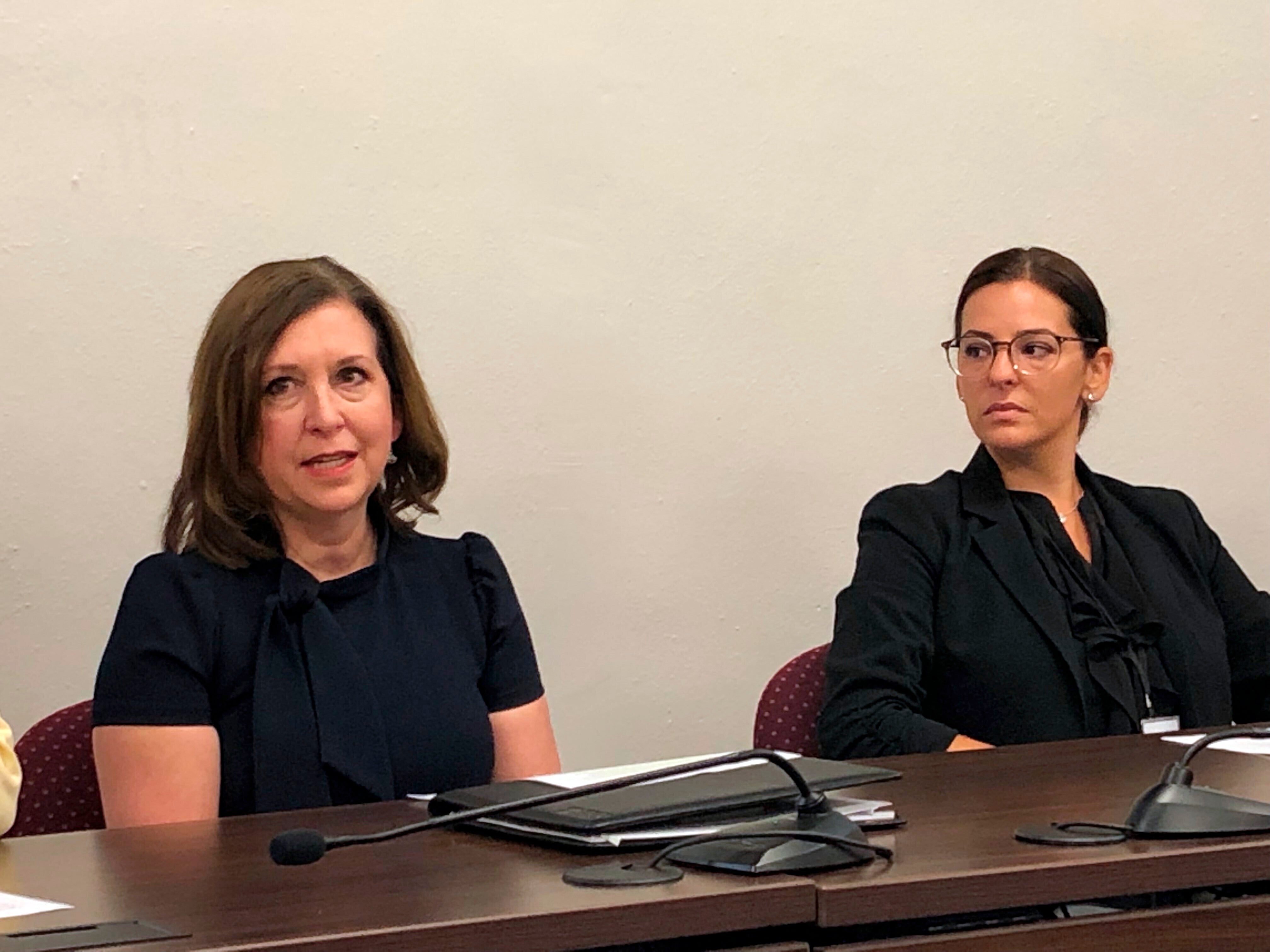Judge tosses suit claiming illegal acts by Indiana treasurer
A judge has thrown out a lawsuit claiming that Indiana’s state treasurer violated state law by awarding contracts worth more than $6 million to firms linked to her political supporters

A judge has thrown out a lawsuit claiming that Indiana’s state treasurer violated state law in awarding contracts worth more than $6 million to firms linked to her political supporters.
The lawsuit, filed by a former top office staffer who Treasurer Kelly Mitchell had fired, claimed the Republican bypassed required approvals from other state agencies in awarding contracts for lobbying and financial services without seeking competitive bids.
Marion County Judge John Chavis issued an order last week dismissing the lawsuit. He ruled that the state treasurer, as a separately elected statewide official, wasn’t required to submit contracts for approval from other state agencies. The treasurer's office oversees several billion dollars in state investment accounts.
“The treasurer must be able to perform her duties without interference by an officer under the governor’s control,” Chavis wrote.
Soon after Mitchell became treasurer, the lawsuit alleged, her office issued contracts to eight banks, a financial services company and a law firm which either directly contributed or had ties with others who contributed to Mitchell’s 2014 or 2018 treasurer campaigns — or did so to her unsuccessful 2020 run for Congress.
Mitchell isn’t running for reelection this year because of term limits and her term as treasurer ends in early January.
Chavis found that the contracts were valid. He also wrote that the lawsuit didn’t claim that the businesses had failed to provide services to the state or object to the payment amounts.
The whistleblower lawsuit was first filed in 2020 by James Holden, who was the chief deputy treasurer under then-Treasurer Richard Mourdock. Holden was given a new three-year employment contract worth $100,000 a year before Mourdock left office, but Mitchell fired Holden the day she took office in November 2014. He later received a $92,500 settlement in a wrongful termination lawsuit.
Holden’s attorney, Chris Wolcott, said he was not immediately available to comment Monday.
Holden’s lawsuit said he obtained the vendor contracts awarded under Mitchell during research for his wrongful termination lawsuit and public records requests he filed.
The judge found that Holden didn’t meet the state legal requirements for a whistleblower lawsuit, which would have potentially entitled him to a share of money paid back to the state. Holden “does not claim any direct or independent knowledge here, and his allegations concern events that occurred after he left the State’s employ,” Chavis wrote.
Holden’s lawyer had argued in court filings that blocking the whistleblower complaint on those grounds would reward state officials and others who broke the law.
“To suggest that public officials may shield illegal contracts from public view, and then use the Indiana Access to Public Records Act itself to protect themselves from the consequences, makes a mockery of the purposes of the (whistleblower law) and Indiana’s public access laws,” Holden’s court filing said.
Bookmark popover
Removed from bookmarks